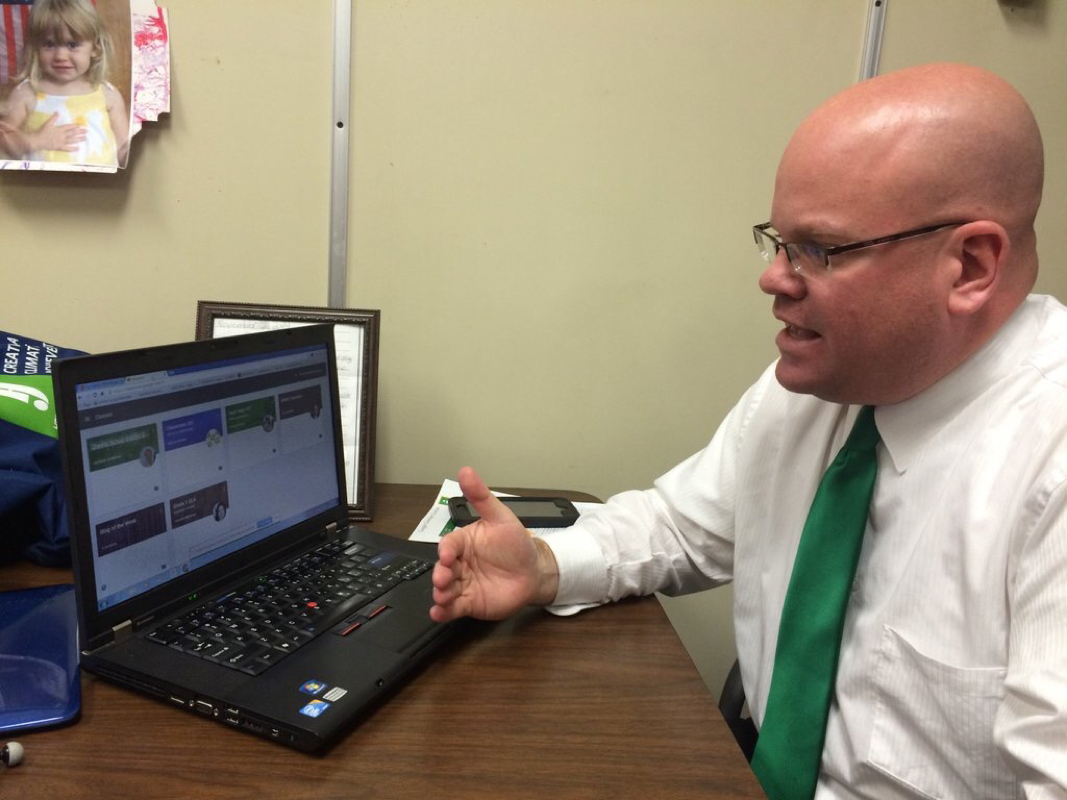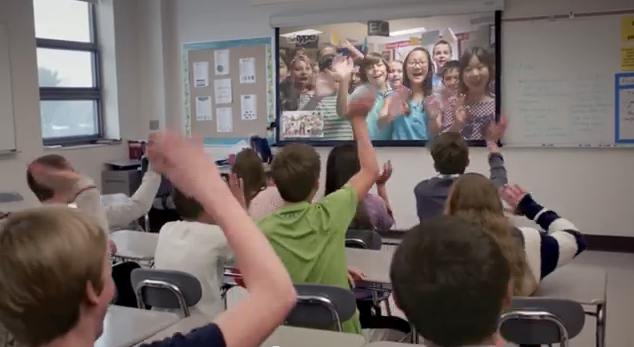|
Recently I participated in a lively #Satchat discussion on preparing our pre service teachers for the workforce utilizing social media. At one point in the conversation I used the phrase "digital mentors" in one of my tweets. For some reason it resonated with some of the participants. I think that it's really important that educators from all walks of life have mentors in both the physical and virtual world. In some regards, mentorships in the educational world have taken a bad rap whether it's time constraints, poor support structures, or lack of motivation to help fellow colleagues. The great thing about technology is that it provides an avenue to do things differently. And in this case, technology allows educators to reach out to and learn from others utilizing tools like Twitter, Voxer, Google Hangout, Periscope, and Blab to name a few. In fact, wouldn't it be great if the digital mentor component was embedded in educator's professional growth plans? What a game-changer this would be! Don't get me wrong, it would take a whole lot of work to get it off the ground running just like a full fledged mentor program in the physical world. But deep down inside I feel that it would benefit so many. Educators often preach about differentiation, so why are we not doing it when comes to mentoring? I see the benefits of mentoring in the virtual world on a daily basis, particularly on Twitter. I am able to bounce ideas off of people from around the world with a few taps of iPhone. They get back to me in a timely fashion with insight that is second to none. I can also reflect on the work I do by matching it up to what others share in their tweets. Most importantly, I can take what I learn from interacting with people on Twitter and bring it back to my school so that the success of students can be impacted in a positive way. Don't like Twitter? No big deal. You can apply this digital mentor concept to anything including Google+, Skype, Linkedin, Facebook, or Instagram. Personally I feel that it's no longer an option to be connected with educators in the virtual world. Teachers, leaders, support staff, professors, commissioners, and educational organization members all need to find ways to improve their craft. In my mind successful educators live by the mantra that "status quo is not an option." Three words should be at the forefront of what educators do on a daily basis: share, reflect, learn. The more we model this way of life, the more likely that it will become contagious and infect our school's culture in ways once thought unimaginable. Students will soon realize that they to can have positive impact with the tools they use in the digital world. Wouldn't it be nice if every classroom had an unofficial "digital mentor" that they could turn to on a periodic basis to learn from and share ideas with? Parents, and community members can also provide support with school wide initiatives or career based learning experiences. The future is bright when comes to mentoring in the digital world. Coupled with a strong support structure in the physical world, educators could be armed with so many great ideas, strategies, and resources. The impact on students will be so tremendous that they to will ultimately see the potential in all the good that comes from supporting one another with technology. Over the coming days, weeks, months, and years make a commitment to improving yourself and others by creating opportunities for sharing, supporting and learning in the digital world. It will change who you are for the better and transform learning experiences for students in so many ways.
2 Comments
A student's ability to speak in front of their peers has always been an important real world skill to develop in the school setting. With the evolution of technology, in particular mobile devices, students now have the ability to share their thoughts globally with a few taps of the screen. Being that we now in the year 2016, it's imperative that educators support students efforts to communicate clearly and effectively on smartphones, tablets, and laptops. For the most part, most devices in today's world come equipped with microphones and cameras. It's so easy for students to show what they know or learn more about the world around them by way of a Google Hangout, YouTube video clip, or podcast to name a few. Students must be put in digital situations where they can practice looking into the computer camera, speaking off of digital notes, communicating clearly, social cues during an online group discussion, and making their point with images and text on various presentation platforms. In fact, the same can be said for educators that are leading or participating in a webinar, Skype call, etc. The more teachers provide students with the autonomy to leverage the power of this particular technology, the more opportunities there will be to improve their digital speaking skills. Here are eight tools that can help students communicate in the digital world...
FlipGrid ~ Post a topic or question and have participants respond via recorded video. Blab ~ Watch, record, and participate in live virtual conversations. Google Hangout ~ Conduct live and recorded conversations. SoundCloud ~ Upload, record, share, and promote voice recordings. Voxer ~ Tap to talk web application with image, text, and video capabilities. Skype ~ Video call an individual or groups of people. YouTube ~ Create a maintain your very own online media channel. As you can see there are so many options for kids to show what they know in the digital world through video and voice. Click here to access rubrics aimed at helping understand expectations when put in these types of learning experiences. There are other ways for students to work on their digital speaking skills through apps they already utilize such as Instagram, Snapchat, Twitter, and Facebook. It's important to note that students should have options available to them when they are tasked with having to use this sort of technology. Looking for ideas on how to connect students on a global scale? Check out Connecting Your Students With The World by Blumengarten, Naugle, and Krakower. A one size fits all approach will back fire and limit creativity. The time is now to take a risk and put students in a position to succeed as they communicate and collaborate in the virtual world. Brad Currie is the author of All Hands on Deck: Tools for Connecting Educators, Parents, and Communities and the newly released Personalized PD: Flipping Your Professional Development. He is one of the founding partners of Evolving Educators LLC. Brad is a 2014 ASCD Emerging Leader and Google Certified Trainer. Brad currently serves as a K-8 Supervisor of Instruction and Dean of Students for the Chester School District in Chester, NJ. He is a Google Certified Trainer and speaks nationally about tech integration. Learn more about Brad by following him on Twitter @bradmcurrie or visiting his website at www.bradcurrie.net. |
Archives
May 2020
Categories
All
|


 RSS Feed
RSS Feed
